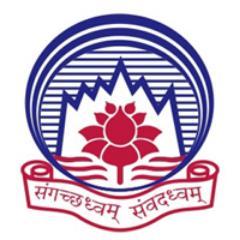Applications Invited for Administrative Staff College of India (ASCI) Fellowship Program

![]()
Application deadline by 27th Dec 24
About the Administrative Staff College of India (ASCI)
The Administrative Staff College of India (ASCI), established in 1956, is a premier institution recognized for its expertise in policy advocacy, capacity building, and advisory services. Designated as a Centre of Excellence in Urban Governance by the Ministry of Housing and
Urban Affairs (MoHUA), ASCI excels in governance reforms, service delivery, and institutional strengthening in urban WASH.
ASCI imparts sanitation education and training programs to municipal officials and conducts action research to strengthen the policy ecosystem. ASCI has an exclusive wing that provides advisory support to Gol and state governments on worker safety issues and sanitation service mechanisation. ASCI is recognised as a knowledge partner that supports the SBM 2.0 and AMRUT 2.0 programs of MoHUA.
About the Program
Sanitation workers in India are the backbone of the country’s sanitation system, with over five million individuals maintaining cleanliness, managing waste, and ensuring functional sewer systems. Their roles span across nine categories, including sewer cleaning, faecal sludge
handling, public and school toilet cleaning, and domestic waste management. Despite their critical contributions to public health and environmental outcomes, sanitation workers face severe challenges, including unsafe working conditions, low wages, lack of social security,
and persistent social discrimination.
The Government of India has introduced initiatives like the Prohibition of Employment as Manual Scavengers and their Rehabilitation Act (2013) to curb hazardous practices and improve conditions. Programs such as the Safai Mitra Suraksha Challenge and National
Action Plan for Mechanised Sanitation Ecosystem (NAMASTE) promote mechanisation and safer work environments. However, challenges persist due to unregulated private-sector sanitation services, weak implementation of policies, and insufficient institutional frameworks,
such as the Responsible Sanitation Authority (RSA) and Emergency Sanitation Response Unit (ESRU). Moreover, data gaps on worker mortality and inadequate compensation discourage accountability and improvement.
Therefore, there is an urgent need to strengthen the policy ecosystem and implementation strategy at the national level to enable and incentivise states and ULBs to adopt mechanisation, strengthen institutions at the district and ULB level, and build the capacities
and skills of stakeholders to ensure zero incidents of injury or death during sanitation operations in India.
ASCI along with its renowned global partners aims to create a Zero-Incident Swachh India by building sanitation workers’ capacities and related ecosystem development.
The SWS Fellow shall work towards achieving the objectives of the program.
- Support program activities aimed at improving the safety, health, and dignity of sanitation workers.
- Engage with sanitation workers, urban local bodies, and community-based organizations to document lived experiences and solutions.
- Provide handholding support to trainers on sanitation worker safety and wellbeing
- Collect feedback from the Training Centres regarding the delivery and course material used during the trainings.
- Contribute to the development of guidelines, training modules, and advocacy materials.
- Assist in identification of alumni of the training centres and development of case studies.
- Contribute to monitoring and evaluation of the training programs and documenting their impact.
- Prepare project reports, documentation of project activities, and necessary correspondences.
- Coordinate and set-up internal and multi-stakeholder project review meetings and undertake necessary follow-ups.
- Assist in designing campaigns to promote social inclusion and respect for sanitation workers.
- Undertake research on the dignity, self-esteem and social status of the sanitation workers.
- Conduct field studies and qualitative research to assess the challenges faced by sanitation workers.
- Travel to the cities for documenting the incident cases and undertake diagnostic studies for the root causes.
- Other activities and responsibilities that are incidental to the above, and connected therewith.
Expected Qualifications and Experience
- A Master’s degree or higher in Sociology, Urban Studies, Development Studies, or a related discipline.
- Three years of experience working on sanitation workers’ issues or related social inclusion/exclusion topics.
- Demonstrated interest in the safety, welfare, and dignity of sanitation workers.
- A proactive attitude towards addressing social justice and urban development challenges.
- Strong analytical mindset and proven research abilities.
- Ability to collect and collate data and information, draw meaningful insights, and create action items therefrom.
- Excellent communication, documentation and interpersonal skills in English and Hindi.
- Ability and experience to coordinate with different teams and foster effective collaboration among team members.
- Proficiency in MS Office tools and social media platforms.
- Willingness to travel extensively and engage in on-ground research and interaction with sanitation workers.
Application Process:
Candidates meeting the above requirement may apply in confidence with the most recent Curriculum Vitae, along with a cover letter (PDF files, not password protected) to careers@asci.org.in mentioning Job ID in the subject line.

